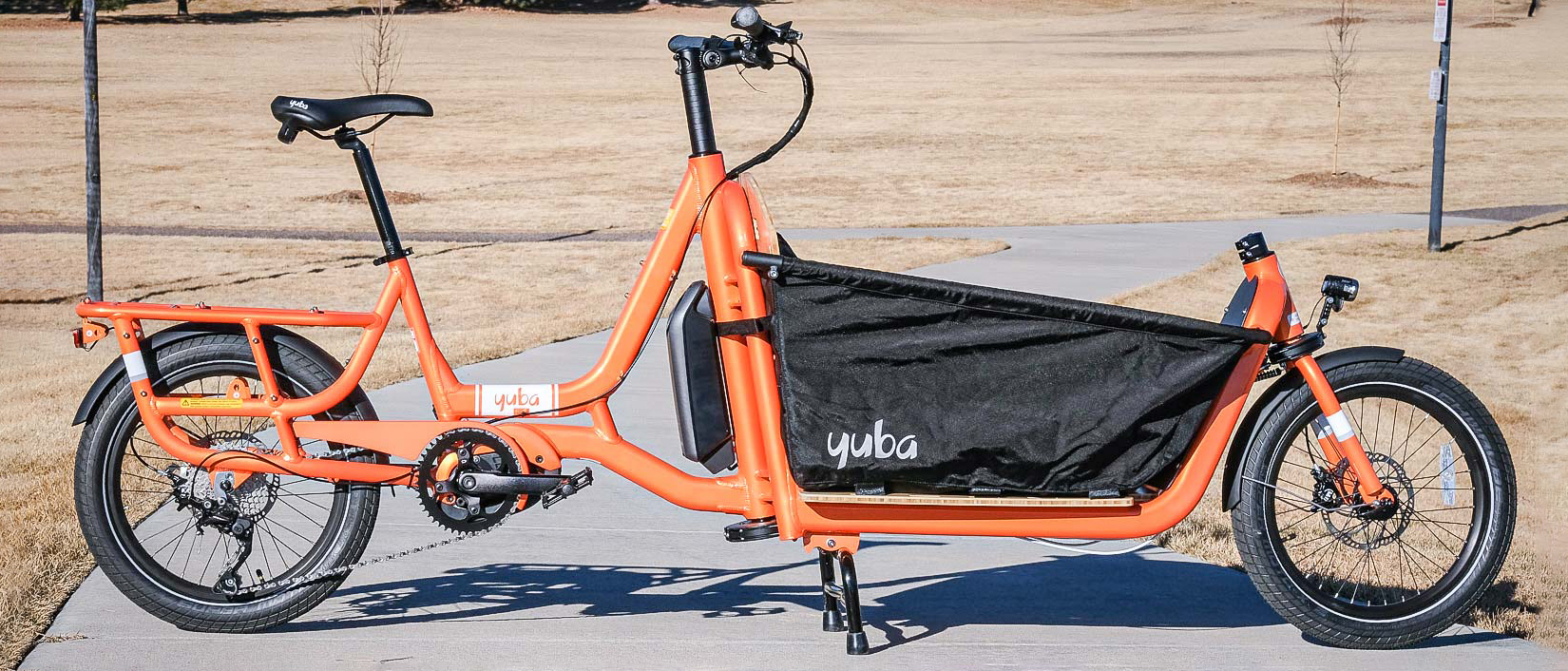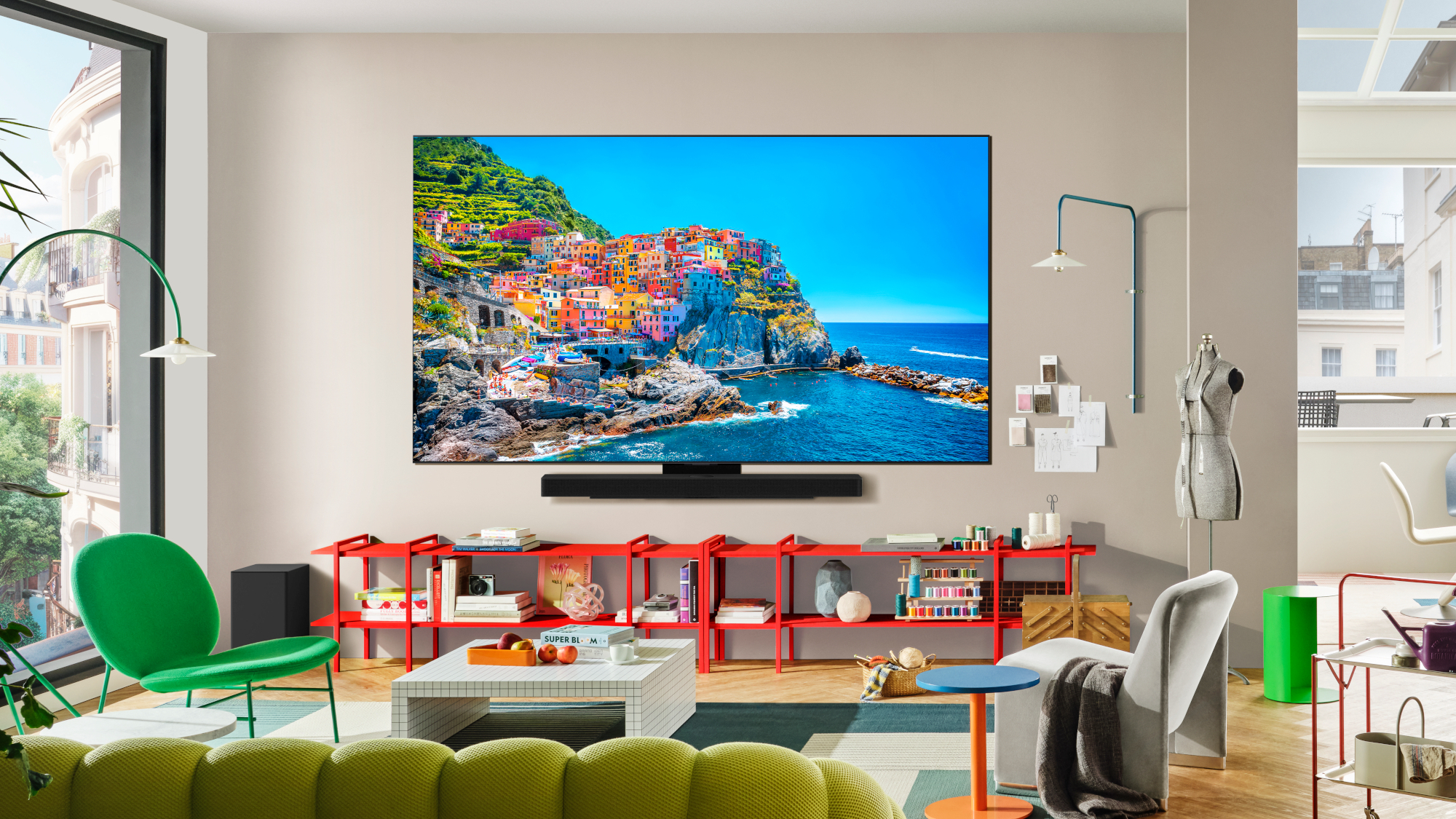Tom's Guide Verdict
A stable and versatile e-cargo bike, the Yuba Supercargo has one of the best center stands, tons of accessory options, and a powerful Bosch motor that places it toward the top of the best cargo bikes out there.
Pros
- +
Stable, fun ride
- +
Lots of cargo space
- +
Quick, responsive, and powerful motor
Cons
- -
Bumps can be a bit jarring
Why you can trust Tom's Guide
Size: 8.5 feet long
Weight: 88.2 pounds
Motor: Bosch Cargo Line Cruise Motor+
Battery: PowerPack 500 Battery with 250W and 36V of
power
Max speed: 20mph
Range: 60 miles per charge
Transmission: Shimano Deore 10-speed drivetrain
Perhaps it’s telling that the first thing I noticed on the Yuba Supercargo CL was its center stand. A bad center stand can make or break a cargo bike’s usability, especially if you’ll be loading the cargo bay heavy. I’m happy to say the Supercargo CL has one of the better center stands I’ve used; it’s easy to access, tucks up and out of the way easily when not in use, and provides plenty of stability when the bike is parked.
So the Supercargo SL is off to a good start. Better yet, the Yuba was just as stable while in motion, thanks to its low center of gravity. In real world testing for this Yuba Supercargo SL review, the bike largely lived up to lofty expectations. It is indeed stable, fun to ride, and practical. It’s no bargain, but in terms of value compared to its competition, the supercargo is one of the best electric bikes if you’re looking to haul a lot of stuff.
Yuba Supercargo CL review: Price and availability
Supercargo CL pricing starts at $6,000 and goes up from there depending on how many accessories you add on. That puts it on the lower end of the price range for cargo bikes, which start anywhere from $6,000 to $8,000 or more.
You can configure your Supercargo CL right on the Yuba Bikes website, and you can order on site as well. If you prefer to buy from a local dealer, Yuba has a dealer locator built into its website so you can find the shop closest to you.
The Supercargo CL is available now at local bike shops. As of this this update in 2024 (our initial review was in January, 2022), the bike was backordered on Yuba's site, but there is a link to find it at a local dealer.
Yuba Supercargo CL review: Design
The Supercargo is a big bike that weighs 88.2 pounds (advertised), which is not surprising given its size and load capabilities. You’ll need a garage or storage shed if you want to park this inside; it’s not apartment-friendly.
A Bosch Cargo Line Cruise Motor+ gets the Supercargo going and assists you up to 20mph. The bike comes with a PowerPack 500 Battery with 250W and 36V of power. Yuba advertises a range of 60 miles on a single charge, though that will depend on whether you’re carrying cargo, and what level of assist you’re using.
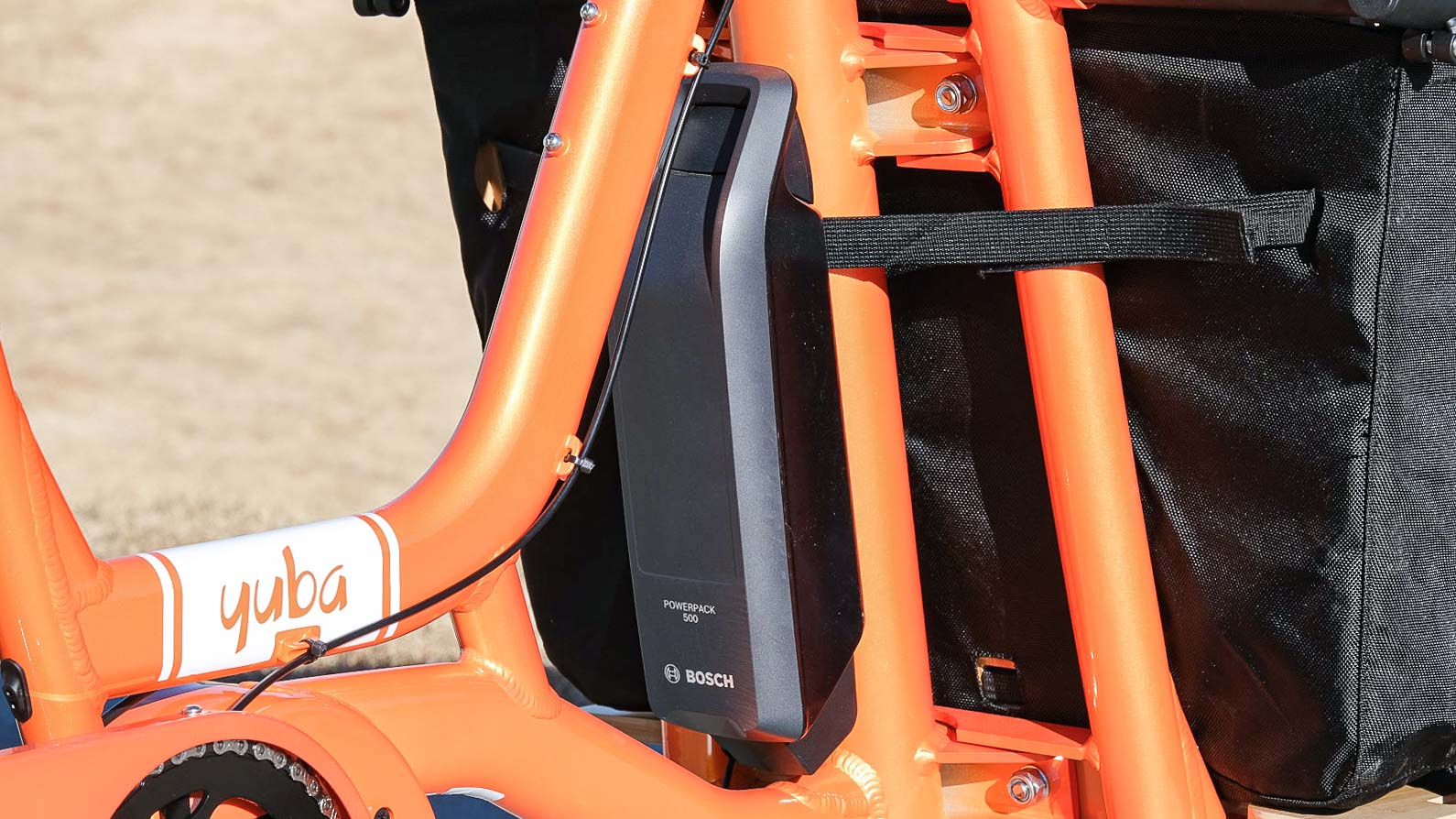
You can get this bike going up to 20mph pretty easily, at which point the assist cuts out and you’re on your own. When the bike is loaded heavy, you probably won’t want to go this fast, though you could if you have long stretches to cover. The bike stays stable even at higher speeds.
The spec includes Shimano’s Deore 10-speed drivetrain and powerful Magura MT5 Next hydraulic disc brakes. Both worked wonderfully during my testing; this is a great spec for this bike.
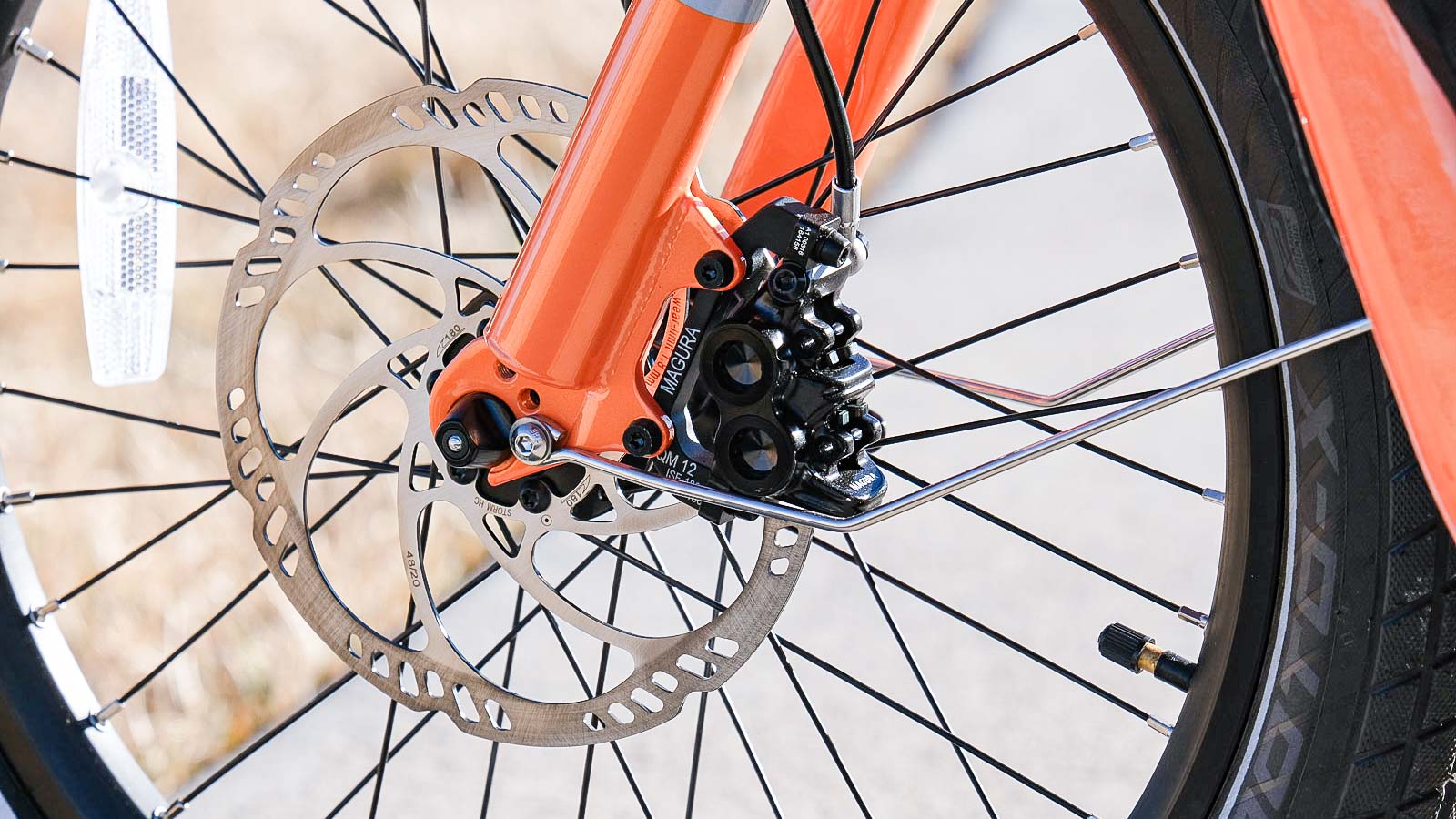
Yuba says its Supercargo offers the lowest center of gravity among cargo bikes, due in large part to the 20-inch wheels and low frame design. Indeed, it does feel very stable while riding and while planted on the center stand.
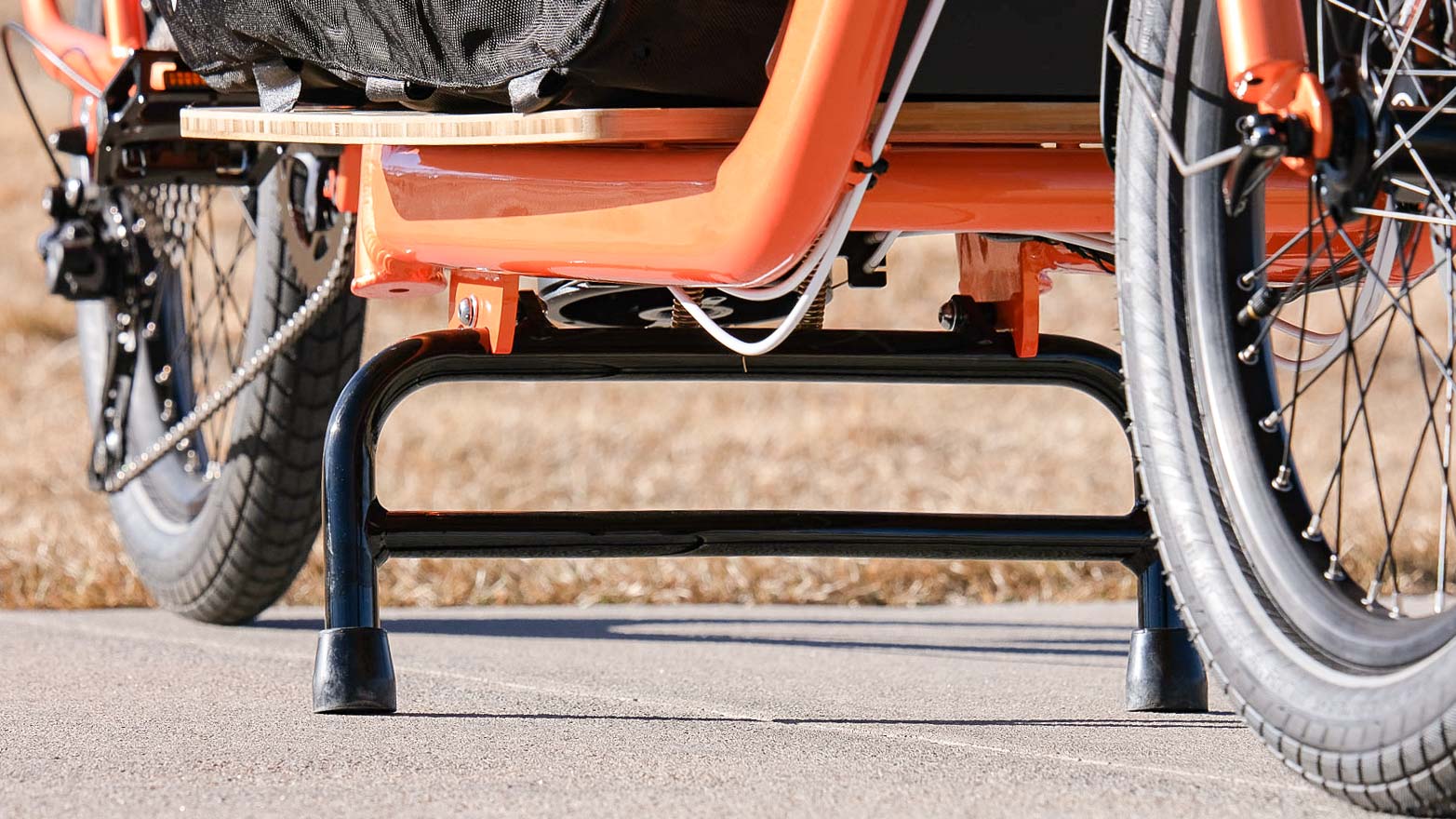
It’s easy to get on and off the bike too, thanks to the step-through frame design. This comes in handy when you’re starting from a dead stop; it’s much easier to get going and position yourself on the saddle.
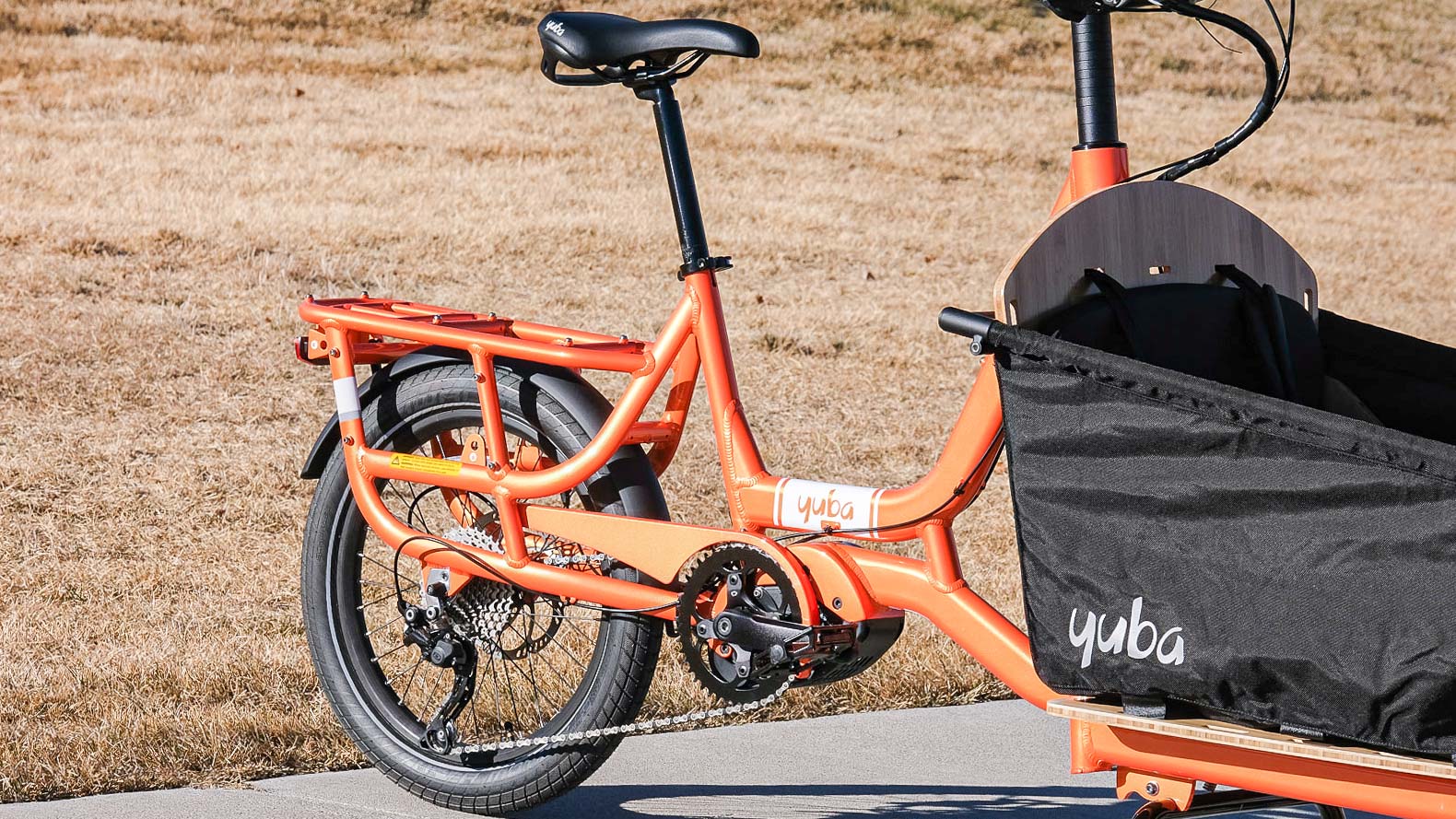
The Supercargo fits riders from 5’ up to 6’5”, and it is quickly adjustable to suit two different riders (say, mom and dad). But you will need to use some tools to make big adjustments.
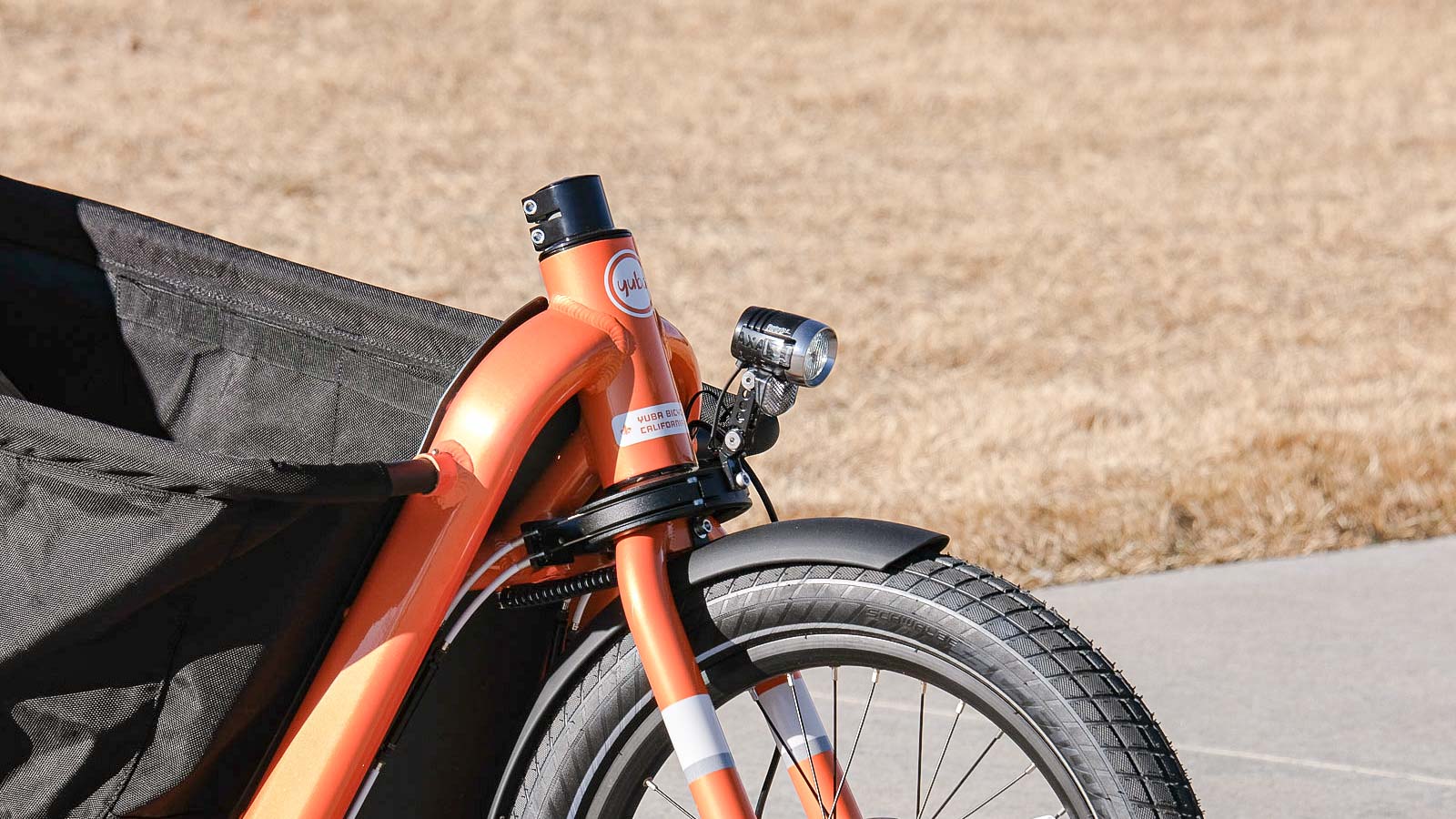
And finally, the Supercargo features integrated front and rear lights. They’re plenty bright for night riding, and they turn on automatically when you turn the bike on.
Yuba Supercargo CL review: Cargo capacity
Yuba says you can carry up to 440 total pounds with the Supercargo (this includes rider weight). The front cargo box can carry up to 220 pounds and the rear rack adds another 80 pounds of capacity.
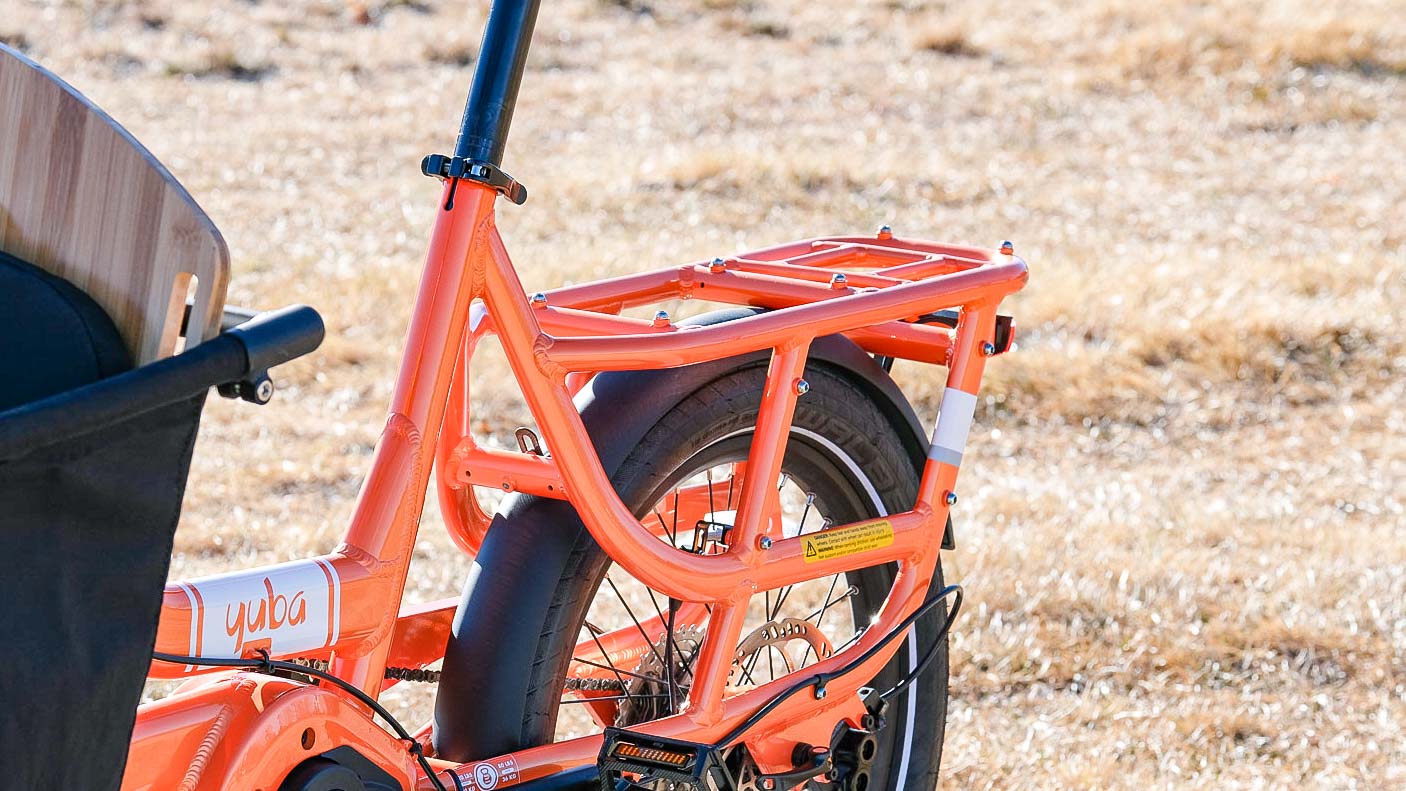
The top of the cargo space measures just over 35 inches front to back; the bottom of the cargo area measures about 23 inches front to back. The rear of the cargo box measures 26 inches across, and at the front of the box you get 22 inches across to play with.
That’s a big capacity for those who might consider this bike for commercial purposes, though if you’re looking for the most payload capacity out there, you’ll want to take a look at Triobike’s Cargo bike, which offers 507 pounds of carrying capacity.
Parents, however, will likely love the Supercargo because it can carry up to four kids — three in the cargo payload and one mounted in a special seat (sold separately) behind the rider. The three seats in the front make for a tight fit, so this is only an option for smaller kids.
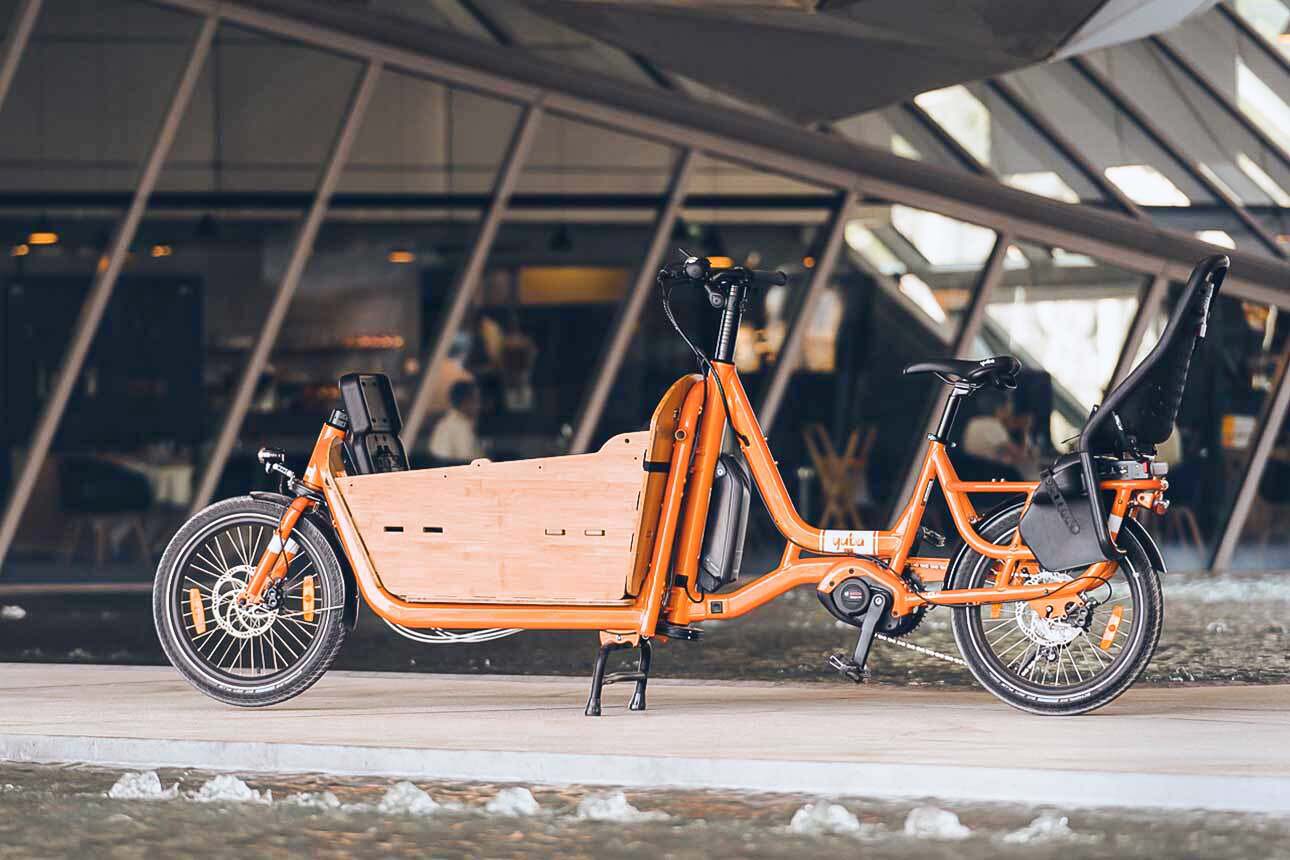
The cargo box is made from bamboo, which is weather-resistant — it won’t shrink or expand if it’s exposed to moisture and heat. It’s also one of the more eco-friendly options for cargo box construction.
Yuba Supercargo CL review: Performance
It’s easy to love the stable, easy-to-use center stand, but that’s hardly the most exciting feature of the Supercargo. Far more importantly, the Supercargo feels more stable and easy to maneuver than most, if not all, of its direct competitors.
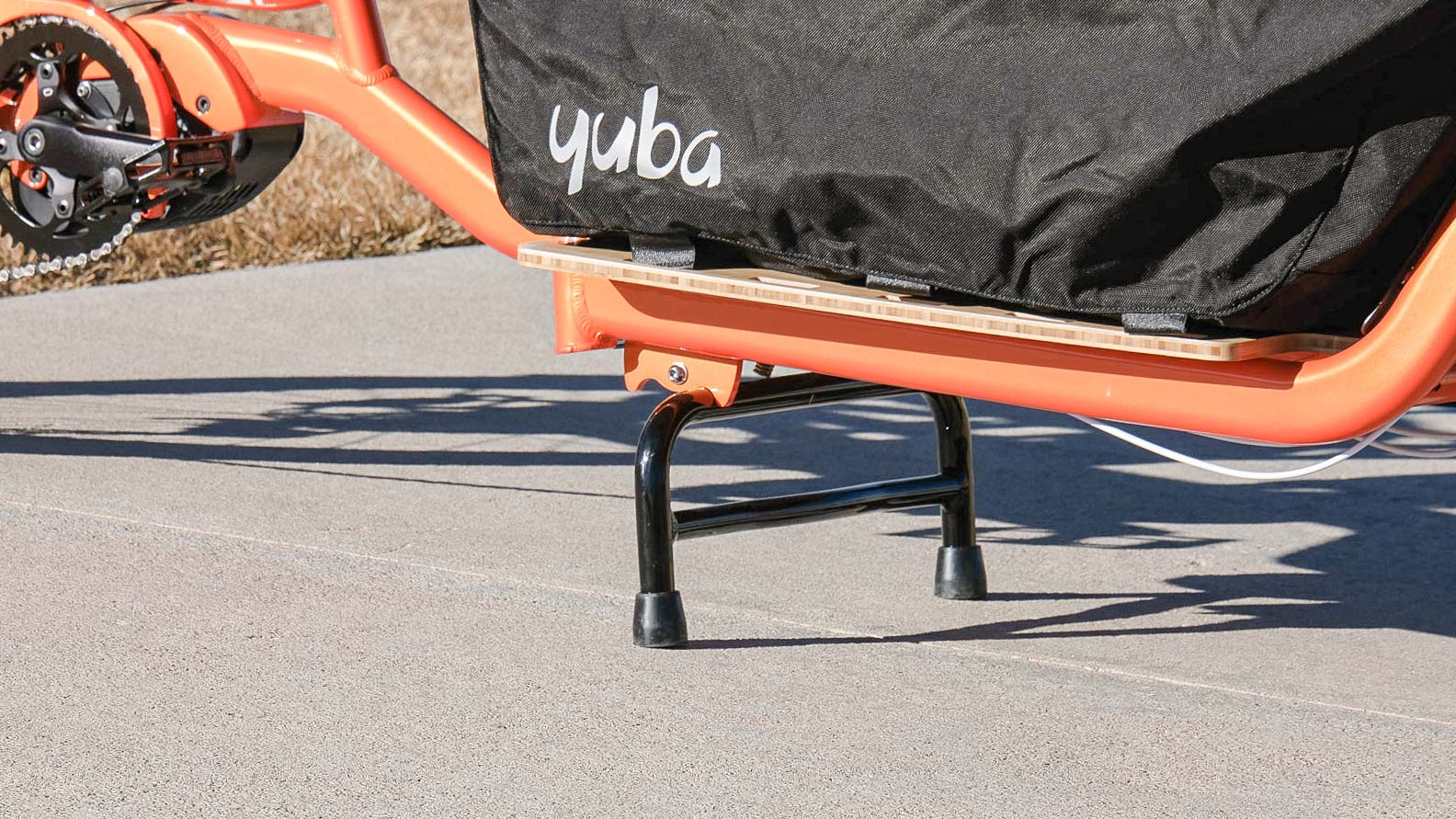
Even starting from a dead stop was pretty easy with the Supercargo; that might have something to do with the 20-inch wheels that help keep the bike’s center of gravity very low, which in turn prevents swaying from side to side.
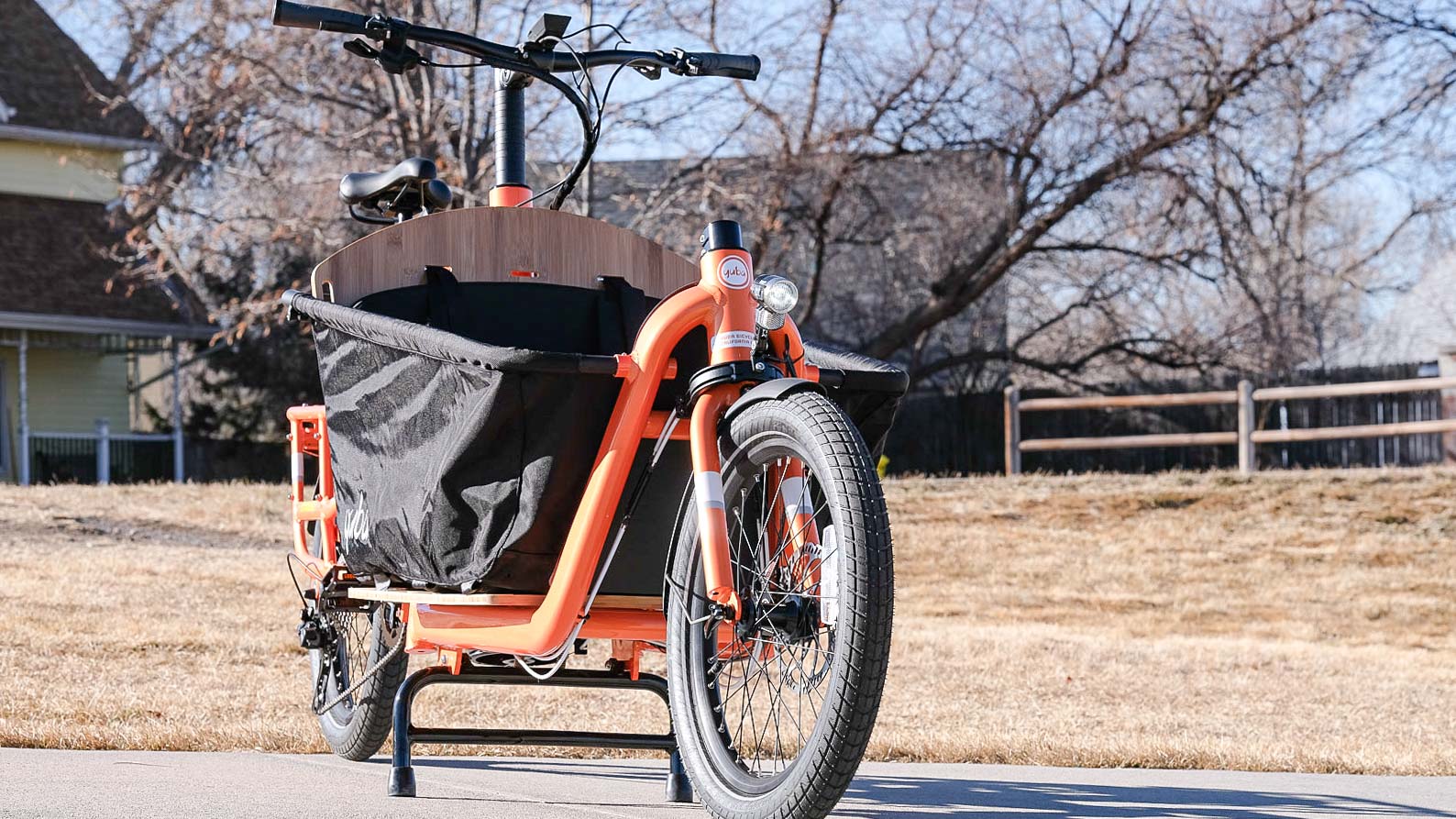
While my daughter absolutely loved riding up front and being able to see where we were going, the seatbelts were too short for her at 7 years old. She didn’t want to ride with the seatbelt anyway, but if you’re going to require your kids to wear a belt, keep in mind they are made for smaller riders.
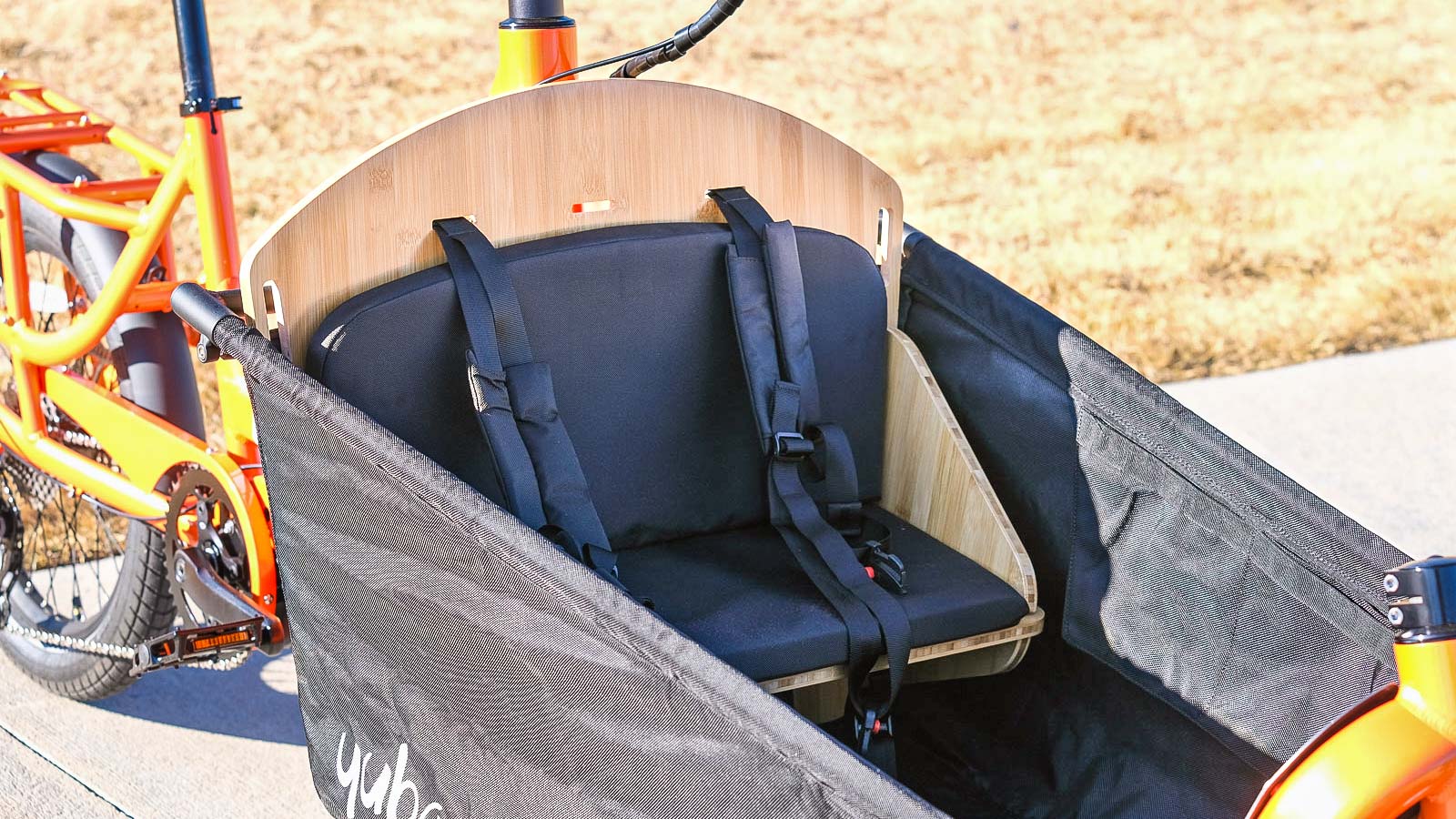
The Magura hydraulic brakes felt great, with lots of modulation and plenty of power when it came time to stop quickly. The Shimano Deore drivetrain also worked wonderfully; no complaints here.
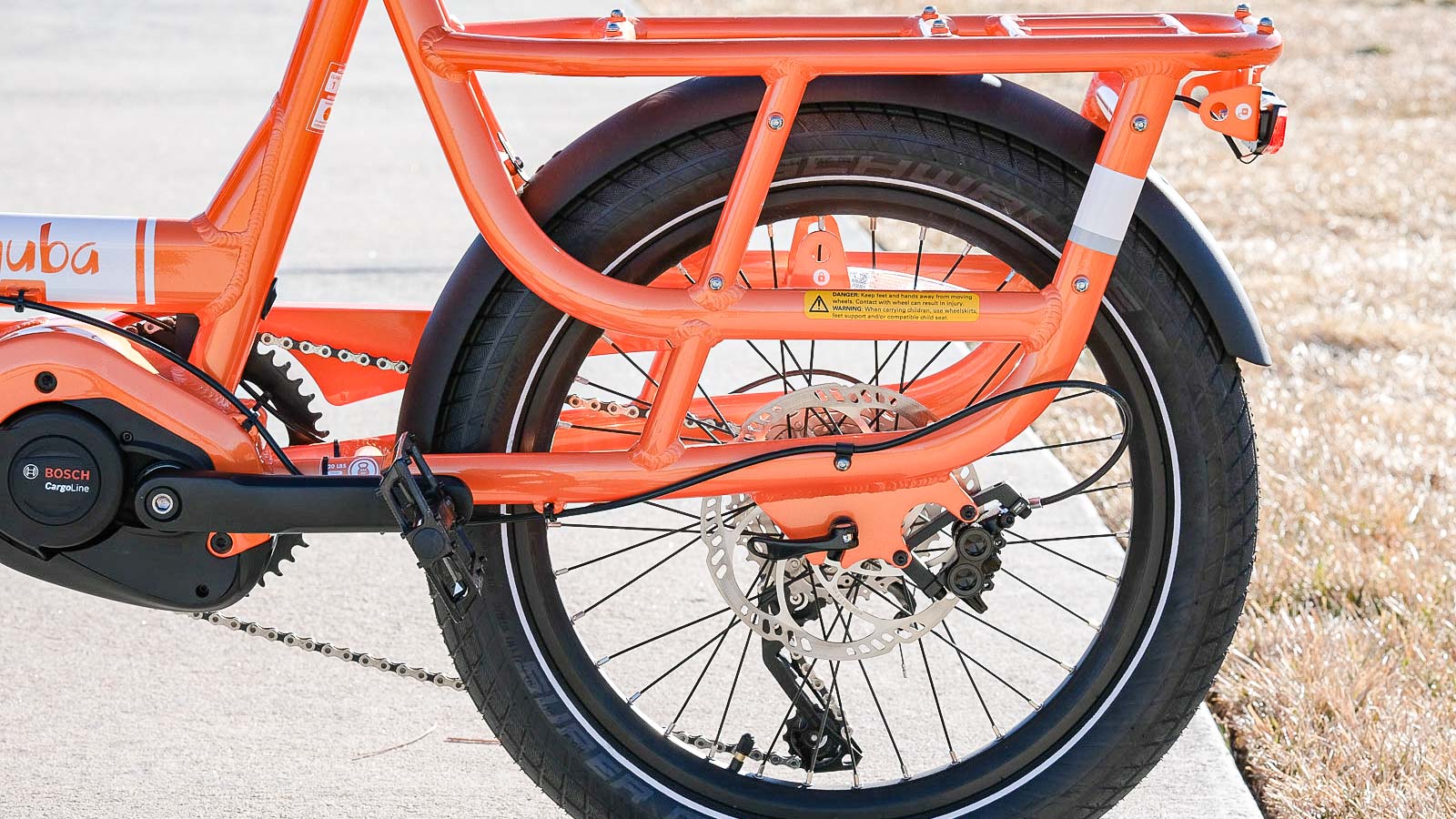
In fact, the overall ride experience with the Supercargo is excellent, from the Bosch handlebar controls to the pedal-assist responsiveness.
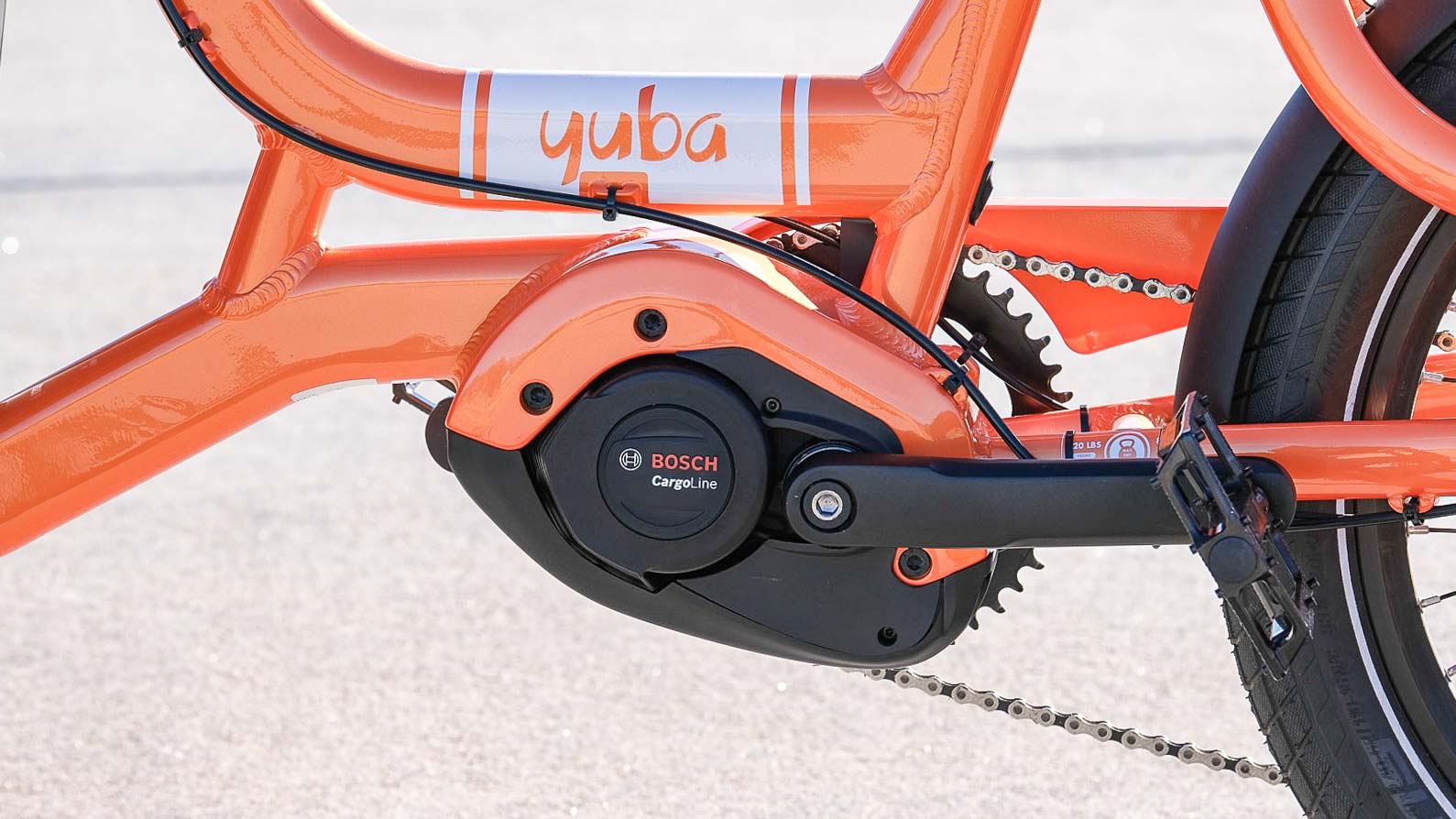
That said, the ride quality can be a bit jarring; both my daughter and I noticed how much road vibration and square-edge hits transferred through the frame to our bodies.
And since the Supercargo is a very large bike, it’s tough to find good places to park it and lock it up when you’re out and about. Consider an extra-long lock to take with you so you don’t have to shimmy the bike super-close to a bike rack to get it secured.
Yuba SuperCargo CL review: Battery life
Yuba promises up to 60 miles on a single charge. I didn’t have the bike long enough to log that many miles, but I did get plenty of life out of it even while riding at the highest assist level. My first ride, for example, was about an hour long and I spent most of that time on the highest assist setting. The battery indicator never budged from full charge status.
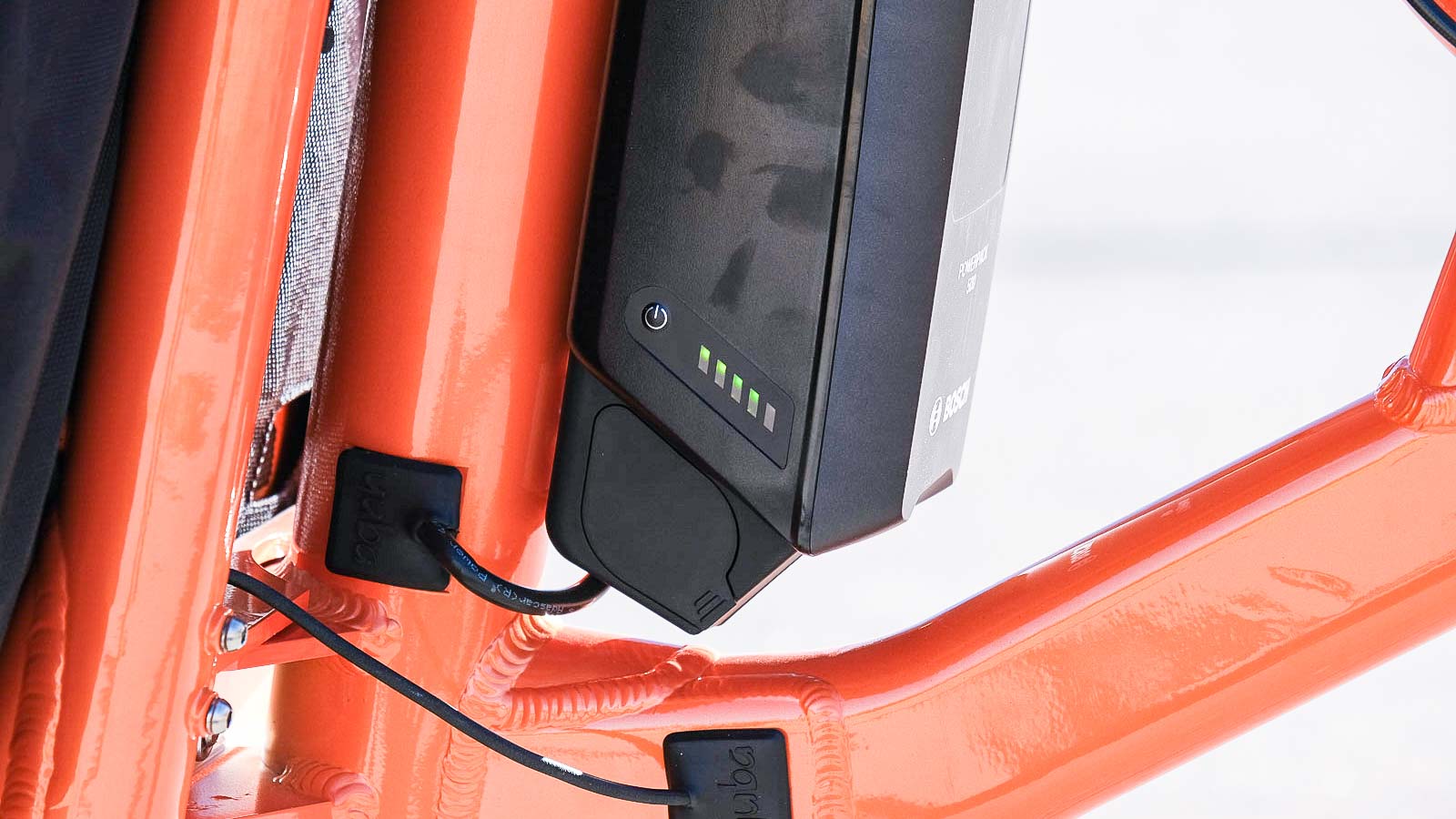
I have ridden the Bosch Cargo Line Cruise Motor+ with the same batteries on other bikes and the battery life has lived up to the advertised claims.
The battery itself is mounted just in front of the rider, behind the cargo area. It can be removed easily using the included key that unlocks the unit.
Yuba Supercargo CL review: Accessories
There’s no shortage of accessories for customizability with the Supercargo, though they are mostly oriented toward families with children.
For simple cargo hauling, you can start with just the bamboo base board, which costs $50. The entire Bamboo Box Supermarché costs $250 and adds the side boards.
The Bamboo Box Seat Kit Supercargo ($150) adds a padded seat and bamboo support for hauling kiddos. You can upgrade instead to the Open Loader Seat Kit Supermarché for fabric lining over the bamboo ($200).
A key upgrade, although a pricey one, is the Cargo Canopy Supermarché. This provides coverage and protection from the elements — a must-have if you want to convince the kids to hop in while it’s raining or snowing out. Whether you want to bike under those conditions is another matter.
You can also add a third seat to the front cargo area with the 2be3 seat ($200). It’s a backward-facing seat that mounts near the front-wheel side of the cargo bay. If you want to add a fourth kid seat option, the Yepp Maxi EasyFit seat ($250) mounts behind the rider.
If you’ll only be hauling goods and not kids, opt for the Open Loader Supercargo, which runs $200 and gives you a big space to toss your cargo.
Yuba Supercargo CL review: The competition
The Yuba Supercargo’s closest competitors include the Urban Arrow Family (starting at $6,000), the Triobike Cargo (starting at $6,657), the Riese and Müller Load 60 (starting at $8,800), and the Trek Fetch+ 4 ($8,499). The Supercargo therefore fits nicely into the lower end of the expected price range for e-cargo bikes.
The Supercargo’s price is one advantage, but the bigger advantage over its competition is its exceptional stability. It handles much better than the Triobike, even though the Triobike offers more payload capacity. You can easily choose between those two bikes based on your needs: more capacity, go with Triobike. Better handling, opt for the Yuba.
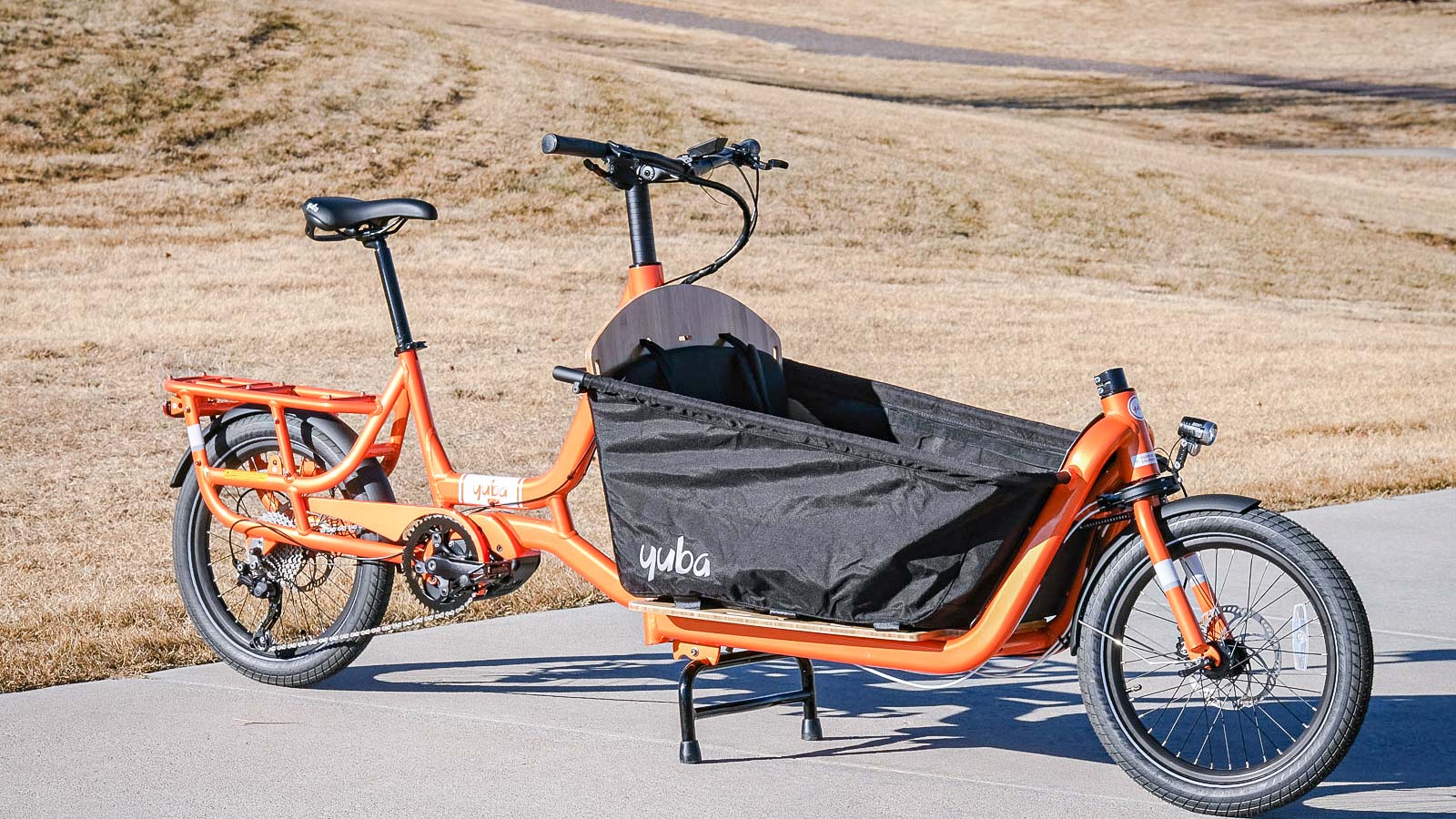
It’s clear the Yuba is focused more squarely on families, so the accessories are all oriented toward kid friendliness. The Triobike offers more versatility in its accessory options, particularly if you’ll be considering using it for commercial purposes.
Yuba Supercargo CL review: Verdict
The Supercargo feels more stable than other cargo bikes of its ilk. It’s easy and fun to ride, and the cargo area offers plenty of space for grocery runs or two kiddos. The motor feels appropriately responsive and strong, and the design is comfortable and user-friendly.
The Supercargo therefore offers some of the best features combined with rideability to make it a top pick among e-cargo bikes, especially if your primary cargo is your family. If you don't need as much capacity as the Supercargo CL offers, it's worth checking out the RadPower RadWagon 4, which starts at $1,999.
While the ride quality can be a bit jarring, there are just far too many standout features to let that be a deterrent. Yuba’s Supercargo CL is an excellent e-cargo bike for families.
Dan Cavallari is the former technical editor for VeloNews Magazine, who currently reviews electric bikes, bike lights, and other bike accessories for Tom's Guide. In addition to VeloNews, his work has appeared in Triathlete Magazine, Rouleur Magazine, CyclingTips.com, Road Bike Action, Mountain Bike Action, CycleVolta.com, Tomsguide.com, and much more. Dan also hosts two podcasts on his site, Slow Guy on the Fast Ride: One is about cycling and other outdoor activities, while the other looks at mental health issues. Most recently, Dan also covered the 2022 Tour de France. Dan lives outside of Denver, Colorado with his family.
